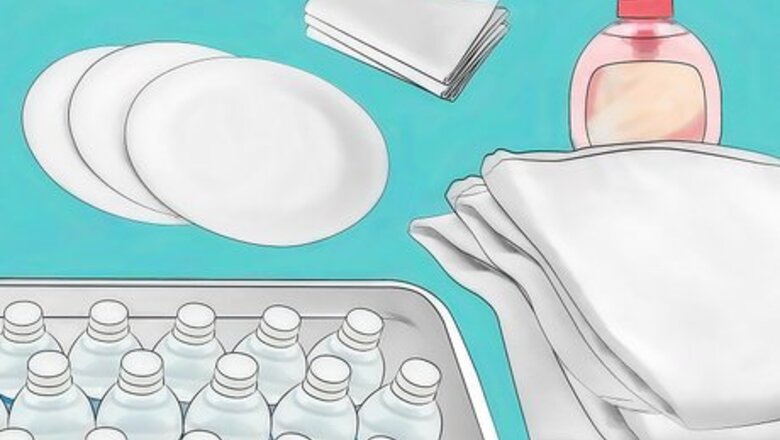
views
Packing and Transporting Foods Safely
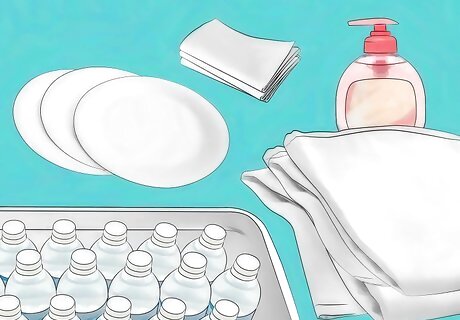
Plan ahead. If you're going to have a tailgating party or a picnic, it's important to plan appropriately. Do you need to have a cooler for chilled items? Do you need extra napkins or paper towels for clean up? Decide what your menu is and what food prep items you'll need to enjoy your outdoor meal safely. You may need to plan to bring a jug of water, hand washing soap or hand sanitizer with you. If the area you're going to doesn't have a bathroom or washroom, you'll need to have these supplies with you. This way you are practicing safe food handling at all times. Will you need extra plates and utensils for serving? Consider what raw items you'll have and how many plates or utensils you'll use preparing these foods. For example, you cannot use the same platter raw chicken was held on to serve the cooked chicken. Think about what supplies you have at home for transportation. Do you have a cooler bag? Do you have enough freezer bags or ice? Buy what items you don't have.
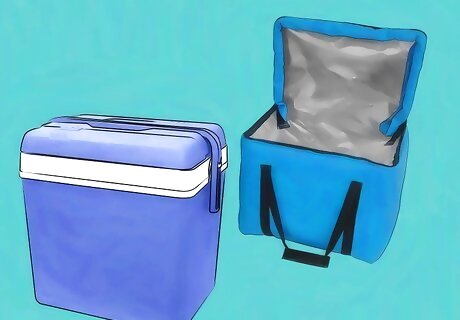
Purchase appropriate coolers and bags for transportation. Probably one of the most important aspects of food safety when it comes to outdoor eating is keeping foods cold. If you let foods get above 40F, you're allowing harmful bacteria (like Listeria) to grow. You need to keep foods very cold until ready to eat or cook. You need to have a cooler bag, freezer packs or ice to keep foods cold. Chilled foods need to be stored at 40F or cooler. If foods reach a temperature above this, especially for more than 2 hours, these foods should be thrown away and not eaten. Foods like meat, poultry or seafood can be put into freezer bags frozen (which can help the bag stay cooler overall). They will slowly and safely thaw in the freezer bag. You may also consider freezing water bottles and putting them into resealable plastic bags. These can serve as ice to keep the cooler cold and when they're thawed, they'll be a nice cold beverage for everyone.
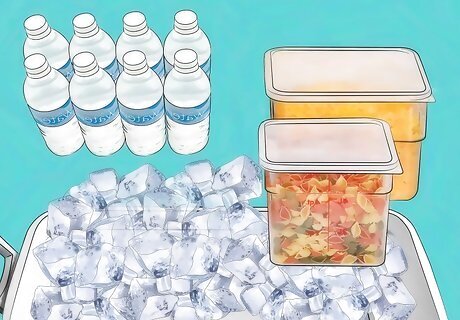
Properly organize your cooler. In addition to keeping your cooler nice and cold, you need to make sure you organize it appropriately. There are some tricks that can keep cold foods cold and prevent cross contamination of foods during transportation. If you're storing chilled items with shelf-stable items, make sure you separate them into specific groups. This will help you keep foods at the right temperature for longer as people continuously open and close the cooler. Start by putting some freezer packs or ice at the bottom of the cooler and then put all your chilled items in. Top with more freezer packs or ice. On top of the chilled items should go all shelf stable food or items that will be taken out, cooked and then eaten immediately.
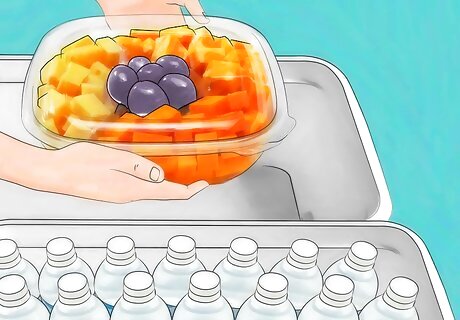
Separate foods. When you're organizing your cooler, it's important to think of how to separate foods. It might be best to use 1 or 2 coolers instead of trying to fit all your foods into one cooler bag. Keep beverages separate. People will continuously go back into coolers for drinks. The more you open and close a cooler, the quicker it'll heat up. Beverages are shelf stable even though we prefer to drink them cold. Keep those separate from perishable foods. Also keep meat and poultry items in separate resealable plastic bags. In case of leakage, these items will be contained and any juices will not be able to cross contaminate other foods. Separate all utensils and serving dishes from foods as well. You might want to bring this in a paper or plastic bag away from foods.
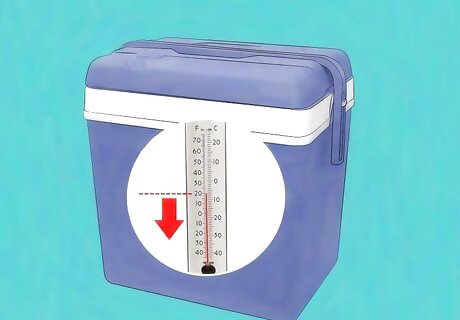
Aim to keep your cooler at 40 F or below. Food safety experts have a "danger zone" temperature range that you need to keep note of. As mentioned, if foods get over 40F this puts them into the danger zone. Monitor the temperature of your picnic foods to make sure they stay at the proper temperature. You can use an instant read thermometer left in your color bag to keep an eye on the overall temperature inside your cooler. When transporting foods, do not put your cooler in your hot trunk. Keep it on the back seat in the shade of an air conditioned car. Also, do not leave coolers outside in the sun. If the outside temperature is 90F or above, your cooler shouldn't be left outside for more than 1 hour. If any foods are kept at over 40F more than two hours, do not eat them. Discard them immediately.
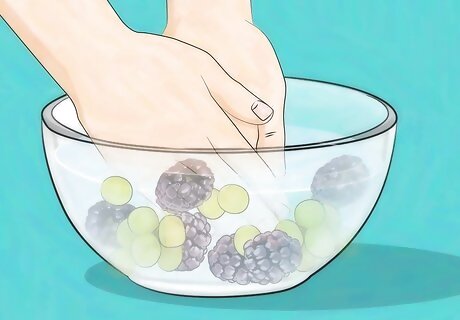
Wash and clean all fresh produce. When you're packing up your cooler, it's important to make sure you prevent any cross contamination - where bacteria from one food gets into or onto another food. Washing and cleaning all your fresh fruits and vegetables can keep your overall picnic safer. Make sure to take the time to wash all your ready to eat fruits and vegetables. These would be apples, pears, carrot sticks, celery sticks, etc. You'll be eating the skin so you need to run them under warm water to rinse away any visible dirt. Also wash fruits and vegetables where the rind or skin is inedible. You can still contaminate other foods and contaminate the inside of those fruits and vegetables as you slice through the outer skin. Once you've washed all your produce, keep them in a separate plastic bag or container. This keeps them clean and ready to eat.
Cooking and Serving Foods Safely
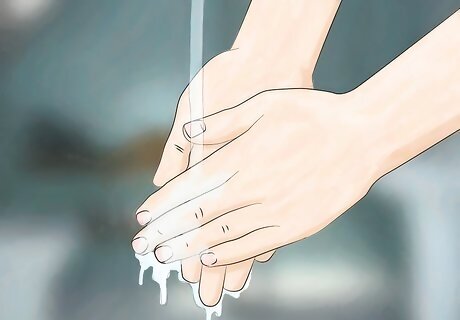
Wash and sanitize your hands. Just like you would at home, it's still important to wash and sanitize your hands when you're preparing your picnic or tailgating food. It may even be more important as you're most likely serving other people. Follow these hand washing techniques: Wet your hands under running water. You may want a friend or family member to pour water over your hands if there isn't a sink. Squirt a little bit of soap onto your hands. Rub your hands together to get a full lather. Scrub your hands, wrists and under your fingernails for at least 20 seconds. Again, rinse your hands under running water. Grab a friend to help you if there isn't a sink. Rinse until all the soap is gone. Dry with a paper towel or dish towel. Do not touch a door handle or faucet after this stage. If you are using sanitizer, rub a quarter size drop of sanitizer all over your hands and wrists until it evaporates and your hands are dry.
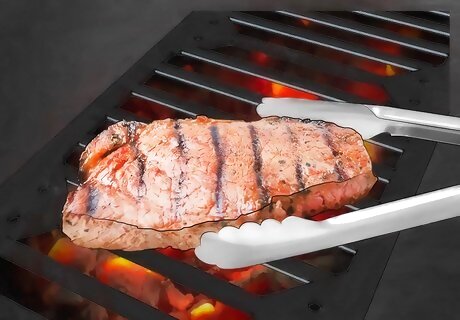
Thoroughly cook all meat and poultry. Whether it's hamburgers, hot dogs or barbecue chicken, you need to make sure you cook each type of protein properly. When you ingest undercooked poultry or meat you take the risk of getting sick. To get the most accurate temperature reading and to make sure you're safe, bring an instant read or infrared thermometer with you to your picnic or tailgating party. These tools can help ensure you get the exact temperature needed to make sure the foods are safe. Ground beef, pork or lamb needs to be cooked until it reaches an internal temperature of 160F. Steaks, pork chops, pork loin or other whole cuts of meat should be cooked until they reach an internal temperature of 145F. Ground poultry or whole poultry (like drumsticks) should be cooked until it reaches an internal temperature of 165F. If you're bringing leftovers or you've made a casserole to reheat on the grill, these also need to be cooked until they reach an internal temperature of 165F as well.
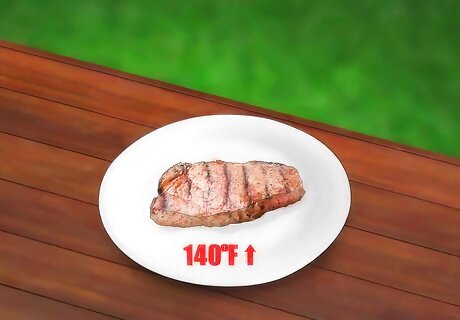
Keep hot foods at the correct temperature while serving. Many picnics and tailgating parties involve a few hours of eating. People will continuously go back for seconds during the game or as you enjoy your afternoon. Like cold foods, you need to make sure hot foods stay at the correct temperature as well. Hot foods, even if cooked to the proper temperature, can end up causing people to get sick. As food cools, they can get back down into the danger zone temperature range. Use your instant read or infrared thermometer to track the temperature of hot dishes you're serving. They should stay at 140F or higher. You can leave these hot foods out for about 1-2 hours. After two hours of sitting out, they should be discarded. Allow foods to sit for a little while everyone serves themselves and then put them back on the grill to stay hot and above the 140F temperature range. To prevent them from drying out, put these hot foods on an elevated grill rack or side of the grill that's on low or off.
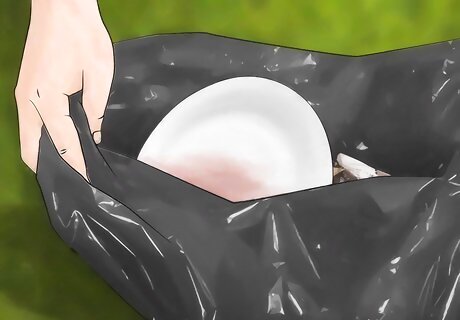
Don't reuse utensils or serving platters. Even if you do all the right things when it comes to packing and cooking foods to the right temperature, you can contaminate all your foods if you accidentally reuse utensils and serving platters. Plates, bowels, trays or forks that were used to hold, prep and cook raw foods should be discarded afterwards or put away until you get home to wash them. If you accidentally reuse these items, it's recommended to throw away the cooked food. You have possibly reintroduced harmful bacteria from the raw food's juices to the cooked food. Once you've put food on the grill, have a new and clean platter and utensil set ready to go. This helps eliminate the possibility of you forgetting to switch to clean items. Also do not reuse a marinade or sauce leftover from raw meat or poultry. Even if it's a tasty sauce, the marinade needs to be cooked until it reaches 165F for it to be safe for consumption. However, it's best to throw out unused marinades or sauces that were used with raw meat and poultry.
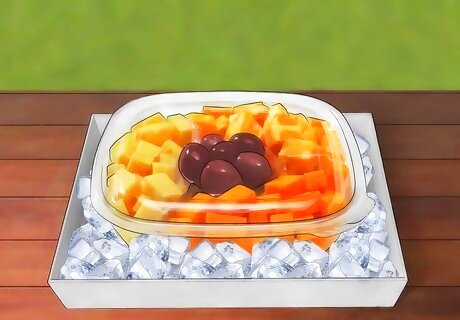
Plan to keep cold foods at the right temperature. It's not only important to keep cold foods at the proper temperature during transportation. It's also important to keep an eye on them when you're serving them as well. Consider bringing big food trays to keep filled with ice for your picnic or tailgating party. You can set bowls or platters on top of the ice to help keep chilled foods at a cooler temperature. Continuously use your instant read thermometer to track how cold your foods are. Make sure this is a separate thermometer from the one you used to check the temperature of meat and poultry on the grill. If they start to get warm, you need to either place them back in the cooler or time how long they can sit out. Set a timer if you do not have a way to keep chilled foods cold. Set it for two hours. Once your timer goes off, it's time to get rid of the cold items.
Choosing Temperature-Stable Foods
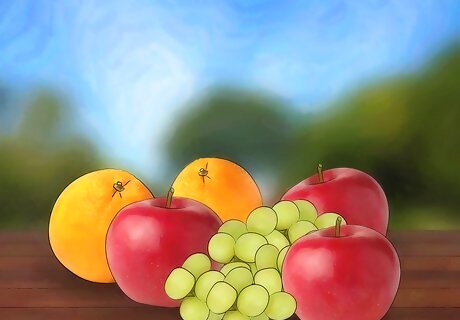
Pack fresh, whole fruit and vegetables. There are a lot of things to consider when it comes to food safety during picnics and tailgating parties. However, there are plenty of foods, like fresh fruits and vegetables, that you do not need to worry about keeping at a safe temperature. Many fruits and vegetables are great shelf-stable items. They don't need to be chilled, they don't need to be cooked and can sit out at room or outside temperature without you needing to worry about them going bad. You may want to consider packing some fruit for sides. You can pack quick items like whole apples, pears, bananas or even grapes. Once cut or sliced, these foods need to be refrigerated. Vegetables are another great side dish or appetizer you can serve. Wash carrots and celery sticks to be served with a ranch dip. Bring whole corn on the cob or sweet potatoes to slice and grill. Also bring whole tomatoes or onions to slice at your picnic for hamburger toppings. Although temperature isn't a concern, you still need to make sure you use safe food handling techniques like washing fruits and vegetables prior to consumption.
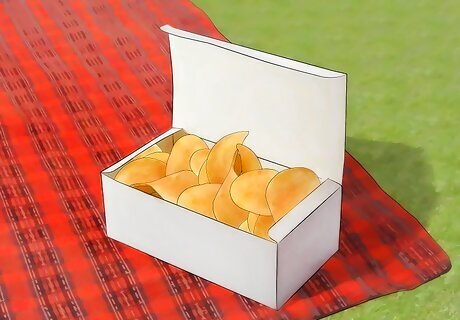
Serve chips, pretzels and crackers. Another easy snack and side dish to bring to a picnic or tailgating party are chips or crackers. They're all shelf stable and you don't have to worry about watching what temperature they're stored at. You can make your prep really easy and just purchase a few bags of your favorite chips or crackers to bring with you. You may also want to consider making some homemade salsa, guacamole or even cheese dip (to be stored at the correct temperature) that you can serve with corn chips. To get a little creative, you can make your own blends. You can toss together your favorite nuts and dried fruit for a trail mix, toss together a few of your favorite chips to make a party blend or even bring a variety of crackers to serve with sliced cheese.
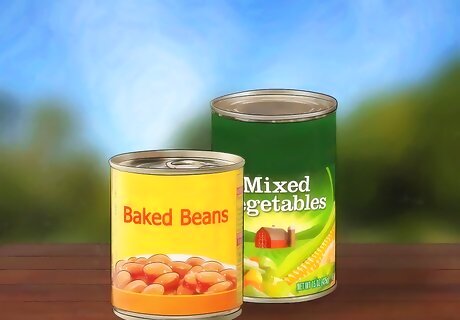
Pack canned items. There's nothing more shelf stable and easy to transport than canned items. Many of these items are already cooked or prepared so all you have to do is open them up and serve them. Canned baked beans are a great item to bring to picnics or tailgating parties. All the work is done by manufacturer. All you need to do is open up the can and reheat them in a grill-safe dish for a few minutes. You can also use a variety of canned vegetables as well. Canned corn can be a great side dish to serve. You can also make your own three bean salad using canned green beans, chick peas and kidney beans. If you don't want to carry whole, fresh fruit, consider bringing a canned fruit salad or individual fruit cups for your guests. Don't forget to pack a can opener if you're bringing canned items.
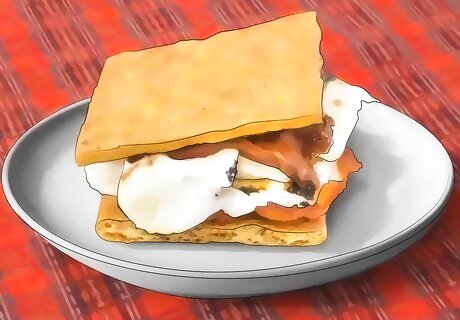
Make s'mores for dessert. Ice cream, cakes or popsicles are a tasty treat for picnics and tailgating parties. However, they may melt or require you to keep them at a cold temperature. Instead of worrying about that, bring all the ingredients for s'mores. They're shelf stable and are the perfect outside dessert. Purchase all the ingredients you need for s'mores. Grab a box of graham crackers, a few plain chocolate bars and a bag of the big marshmallows. Using a skewer, hold a marshmallow or two over the grill or fire until they get golden brown or slightly black. Squash the marshmallow onto a half of a graham cracker. Place a chunk of 4 squares of chocolate on top of the marshmallow. Finish this dessert sandwich by topping the chocolate with the other half of the graham cracker. If you have any leftover s'mores ingredients, they also do not need to be refrigerated to be transported home safely.


















Comments
0 comment